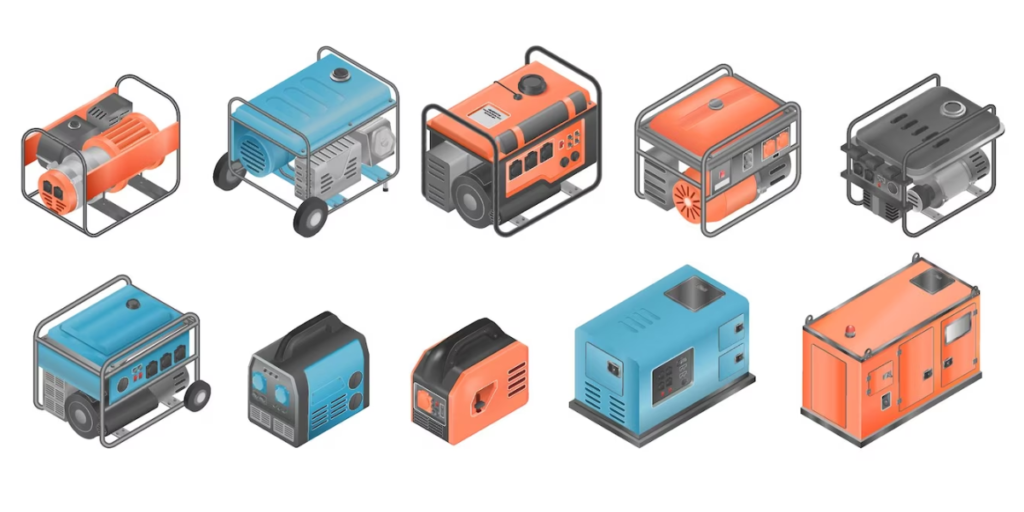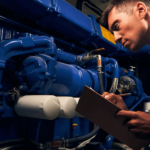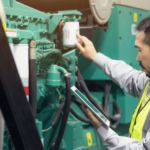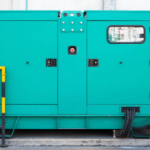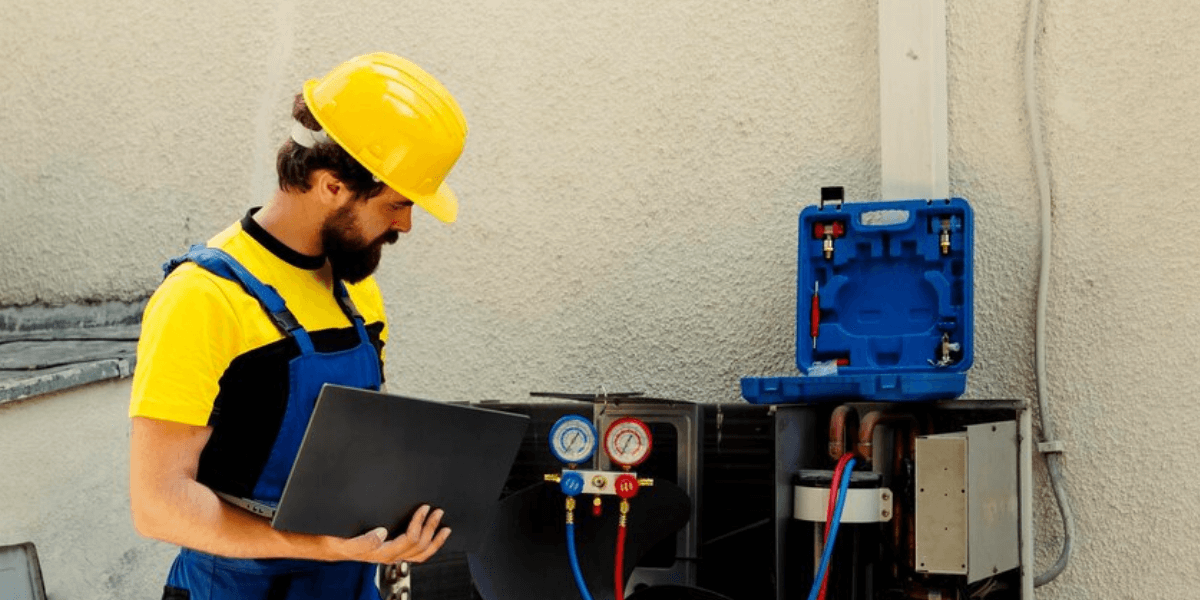As the consumption of electricity increases, power outages are becoming increasingly common. In light of this, having a reliable power generator for your house is no longer a luxury but a necessity. Whether it’s due to severe weather conditions, infrastructure issues, or other unforeseen circumstances, a power outage can disrupt your daily life and essential functions at home. To ensure you’re well-prepared for such situations, this guide will walk you through the key considerations when purchasing a power generator for your house.
The Importance of a Power Generator for a House Power Outage

Power outages can happen unexpectedly, leaving you without electricity for hours or even days. In such scenarios, a power generator for your house acts as a reliable backup, providing continuous power to keep your essential appliances and systems running smoothly. It ensures that your family remains comfortable and safe during unforeseen disruptions.
Generator Buying Guide: Key Considerations

1. Power Requirements
When choosing a power generator for your house, understanding your power needs is paramount. Make a list of essential appliances and devices you want to power during an outage. This could include refrigerators, lights, heating or cooling systems, and medical equipment. Calculate the total wattage to determine the minimum power capacity your generator should have.
2. Types of Generators
There are various options if you’re looking for a generator for a house power outage, each with its own set of advantages. The main types include:
Portable Generators: These are versatile and can be moved around easily. They are ideal for powering a few essential appliances during short outages.
Standby Generators: Permanently installed standby generators are designed to provide continuous power for an extended period. They are usually connected to your home’s electrical system and automatically activate during an outage.
3. Fuel Source
A generator for a house power outage can be powered by various fuels, including gasoline, propane, diesel, and natural gas. Consider factors such as fuel availability, storage requirements, and shelf life when choosing a generator. Gasoline is widely available but has a limited shelf life, while propane and diesel can be stored for more extended periods.
4. Runtime and Fuel Efficiency
The runtime of a generator is crucial, especially during prolonged power outages. Check the generator’s fuel efficiency and the size of its fuel tank to determine how long it can operate continuously. Some generators offer fuel-saving features or dual-fuel options, allowing you to switch between fuel sources for extended runtime.
5. Portability and Storage
If you anticipate needing power in different locations, a portable generator is a practical choice. Consider the weight and dimensions of the generator, as well as the availability of handles and wheels for easy transportation. Additionally, think about storage space, especially if you have limited room in your garage or shed.
6. Transfer Switch and Installation
For standby generators, a transfer switch is essential. This device automatically transfers power from the main electrical grid to the generator during an outage, ensuring a seamless transition. Professional installation is recommended for standby generators to ensure proper connection and compliance with safety codes.
Portable Emergency Generator: A Versatile Solution
Portable generators offer flexibility and versatility, making them an excellent choice for various situations. Here are some advantages of opting for a portable emergency generator:
Versatility: A portable emergency generator can be used for a variety of applications, from powering essential appliances during an outage to providing electricity for camping or outdoor events.
Easy Storage: Compact and lightweight, portable generators are easy to store when not in use. They are an ideal solution for those with limited storage space.
Cost-Effective: Opting for a portable emergency generator can be a more budget-friendly option than standby generators, making them an accessible option for many homeowners.
Finding the Best Generator for Home Use
In the quest for the best generator for home use, the market offers numerous options catering to various requirements and preferences. Open Type Generators and their specialized variants, including Soundproof/Silent Type with Canopy, Super Silent, Mobile/Portable Type, Containerized Generators, Telecom Generators, and Zone II Certified Generators, bring a range of features to the table. Let’s delve into the unique characteristics of each type to guide you in finding the best generator for your home use.
1. Open Type Generators: Versatility in Power Generation
Open Type Generators form the backbone of power generation solutions. Known for their versatility, these generators are widely used in various applications due to their simplicity and efficiency. Open Type Generators are characterized by their exposed design, making them easily accessible for maintenance and repairs.
Advantages of Open Type Generators:
Ease of Maintenance: The open design allows for quick and straightforward maintenance, ensuring that any issues can be promptly addressed without extensive disassembly.
Cost-Effective: Open Type Generators are often more budget-friendly compared to their enclosed counterparts. This makes them an attractive option for homeowners seeking a reliable power source without breaking the bank.
Widely Applicable: These generators are suitable for a broad range of applications, from powering homes during outages to serving as a backup for small businesses.
2. Soundproof/Silent Type with Canopy: Minimizing Noise for Residential Comfort
For homeowners who prioritize a quieter operation, Soundproof or Silent Type Generators with a canopy are an excellent choice. These generators are equipped with soundproof enclosures to minimize noise levels, making them ideal for residential areas where noise restrictions are in place.
Features of Soundproof/Silent Type Generators:
Noise Reduction: The primary feature of these generators is their ability to significantly reduce noise levels, ensuring a quieter operation compared to open-type generators.
Residential Compatibility: Silent generators with canopies are designed to meet noise regulations, making them suitable for residential neighborhoods where minimizing noise disturbance is crucial.
Enhanced Aesthetics: The enclosed design not only reduces noise but also enhances the aesthetic appeal of the generator. This is particularly advantageous for homeowners who want a generator that seamlessly blends into their surroundings.
3. Super Silent Generators: Whisper-Quiet Power Solutions
Taking noise reduction a step further, Super Silent Generators are engineered to operate almost silently. These generators go beyond conventional soundproofing measures, incorporating advanced technologies to achieve whisper-quiet performance.
Key Characteristics of Super Silent Generators:
Ultra-Low Noise Levels: Super Silent Generators are designed to produce minimal noise, making them suitable for environments where noise pollution must be kept to an absolute minimum.
Advanced Acoustic Engineering: The design of these generators often involves advanced acoustic engineering to ensure not only reduced noise but also optimal performance.
Ideal for Sensitive Applications: Super Silent Generators find applications in settings where even the slightest noise disruption is unacceptable, such as hospitals, recording studios, or research facilities.
4. Mobile/Portable Type Generators: Power on the Move
For homeowners who require flexibility in power generation, Mobile or Portable Type Generators offer a convenient solution. These generators are designed to be easily transported, making them ideal for outdoor events, camping trips, or situations where power needs may vary.
Features of Mobile/Portable Type Generators:
Compact and Lightweight: These generators are designed for portability, with a compact and lightweight build that allows for easy transportation.
Versatile Applications: Whether you need power for a camping trip, outdoor event, or emergency situation, portable generators offer versatility in various applications.
User-Friendly Operation: Mobile generators typically come with user-friendly features such as handles and wheels for easy maneuverability.
5. Containerized Generators: Power Packed in a Box
Containerized Generators take the concept of enclosed generators to the next level by housing the entire generator unit within a shipping container. This design provides additional security, protection from the elements, and enhanced mobility.
Advantages of Containerized Generators:
Enhanced Security: The robust container housing provides an added layer of security, protecting the generator from theft, vandalism, and harsh weather conditions.
Mobility: Containerized generators are designed to be transported easily. This mobility is particularly beneficial for construction sites, events, or situations where power needs may change.
Space Efficiency: The container design allows for efficient use of space, making these generators suitable for locations where space is a premium.
6. Telecom Generators: Tailored for Communication Infrastructure
Telecom Generators are specifically designed to meet the unique power requirements of communication infrastructure such as cell towers, data centers, and telecommunication facilities. These generators ensure uninterrupted power supply for critical communication systems.
Key Features of Telecom Generators:
Reliable Power for Communication: Telecom generators are engineered to provide a constant and reliable power source, ensuring that communication systems remain operational even during power outages.
Adaptability to Remote Locations: Telecom generators are often designed for use in remote or off-grid locations where a stable power supply is crucial for maintaining communication networks.
Remote Monitoring Capabilities: Many telecom generators come equipped with advanced features for remote monitoring and control, allowing operators to manage the generator’s status from a distance.
7. Zone II Certified Generators: Safe Power Generation in Hazardous Environments
In industrial settings where hazardous materials or environments are present, Zone II Certified Generators are essential. These generators adhere to strict safety standards to prevent the risk of ignition in potentially explosive atmospheres.
Safety Features of Zone II Certified Generators:
Explosion-Proof Design: Zone II generators are constructed with materials and designs that prevent sparks or heat from causing ignition in hazardous environments.
Compliance with Regulations: These generators adhere to international standards and regulations governing the use of electrical equipment in potentially explosive atmospheres.
Ideal for Oil and Gas Industry: Zone II Certified Generators find applications in industries such as oil and gas, where the presence of flammable gases necessitates equipment with high safety standards.
Conclusion:
Purchasing a power generator for your house is a practical and proactive step to ensure your family’s well-being during power outages. By understanding your power requirements, considering the type of generator that suits your needs, and evaluating factors like fuel source, noise level, and portability, you can make an informed decision. Whether you opt for a portable emergency generator or a standby generator for whole-house backup, the key is to be prepared for the unexpected and to keep your home running smoothly even when the power grid fails. At the same time, if you’re looking for reliable and customized power solutions, look no further than BlueDot Trading LLC! As an authorized OEM of Baudouin France, we are fully equipped and experienced to provide you with bespoke power solutions that meet your unique needs. Whether you’re looking for emergency power generators or industrial power solutions, we’ve got you covered. Contact us today to learn more about our products and services!


